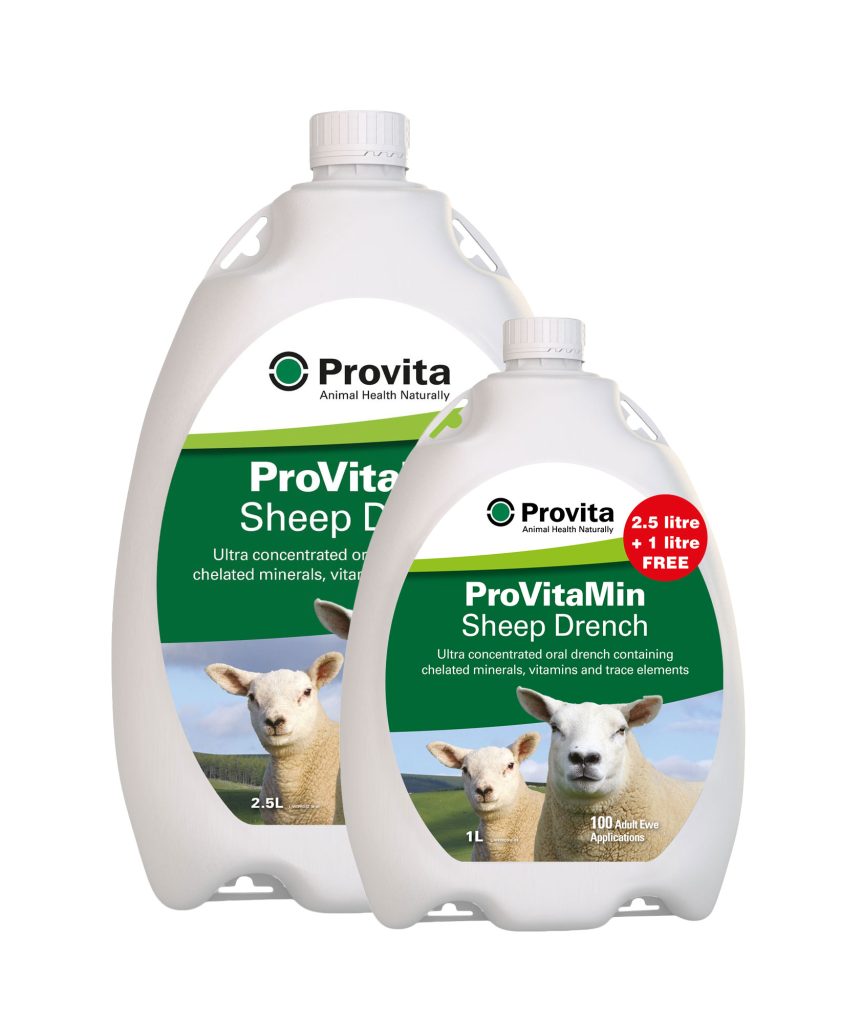Deficiencies on Pasture
Trace element and vitamin deficiencies can adversely affect performance, fertility and profitability in sheep and cattle. The four most important trace elements are cobalt, copper selenium and iodine. Trace element deficiencies can be inherent (low concentrations in soil) or induced (high concentrations of inhibitors. The resultant conditions may be expressed either in a clinical form (symptoms present) or in a sub clinical form (absence of symptoms). The subclinical form is the most sinister resulting in loss of thrift and loss of productivity over an extended period. Common symptoms include poor growth rates, weak lambs and calves, non-specific ill-thrift, or reduced feed intake. An animal’s diet often does not provide adequate levels of trace elements, particularly at certain critical and physiologically stressful periods of the production cycle. Thus, targeted dosing with trace elements and vitamins at these particular periods is often warranted.
Key Trace Elements:
Cobalt
Cobalt is one of the most common causes of deficiency in sheep and cattle. It is used by the rumen to make Vitamin B12. Ruminants are particularly susceptible to deficiency of B12 because they have very little capacity to store cobalt, so a deficiency significantly affects the production of B12 very quickly resulting in stunting and poor growth. Giving Vitamin B12 directly may help as a short-term measure to bypass this dietary insufficiency.
Weaned lambs in late summer/autumn are most susceptible cobalt deficiency (‘pine’) which results in ill-thrift, poor growth, weak appetite, a watery ocular discharge, and poor fleece quality. Sheep are more vulnerable to cobalt / B12 deficiency than cattle. Younger sheep are most susceptible due to their higher energy demands. This deficiency is most common where young animals are on pasture in late summer/autumn, especially where cobalt is not present in adequate quantities in the soils or diet. Young calves and lambs that are not yet ruminating are entirely reliant on vitamin B12 stores built up in their liver before birth, and its continued provision via colostrum and milk.
Copper
Adequate copper intake is critical for fertility, growth, bone development, immunity and hair/wool pigmentation in cattle and sheep, as well as for wool production in sheep. Signs of primary copper deficiency include poor growth, reduced fertility, and increased susceptibility to disease. In more extreme cases of copper deficiency, signs include loss of hair pigmentation, nervous disorders (swayback in lambs), limb and bone abnormalities. Diarrhoeas, infertility and discoloured hair on the coat and eyes may occur in adult cattle. As well as being susceptible to copper deficiency, sheep are also prone to copper accumulation and toxicity.
Selenium
Selenium, together with Vitamin E, plays an important role in immune function and protection from disease. ‘White muscle disease’ affects rapidly growing 2–6-week-old lambs, with sudden onset generalised stiffness, which may progress to an inability to stand within a few days if left untreated. In older growing animals’, selenium deficiency has been linked to poor daily live weight gain and in breeding ewes can cause embryonic death and poor fertility performance. Other effects are increased number of abortions soon after conception, poor lamb/calf vigour, increased number of retained cleansings and impaired wool production.
Iodine
Iodine is involved in energy metabolism and is therefore central to a good food conversion ratio and weight gain. Deficiency is typically associated with an enlarged thyroid (goitre) and results in late abortions, stillbirth and/or increased neonatal mortality.

Drenches and Boluses
Drenches can be used to supplement animals with trace elements at key times of the production cycle, for example pre-tupping and pre-lambing. Oral drenches of trace elements are rapid acting and cost-effective, and they also allow for targeted delivery to certain animals or at specific stress periods during the grazing season or winter housing. Drenches are also advantageous in that:
- A large number of trace elements can be included.
- Vitamins can be incorporated into the formulation also (Vitamins E, A, C, D, B) which can act to potentiate some of the actions of the trace elements and thus boost overall effectiveness.
SPECIAL OFFER: ProVitaMin drench BUY 2.5 litre, get 1 litre FREE.
Available on sheep and cattle drench. While stocks last.
Written by Dr T B Barragry PhD, MSC, MVB, MRCVS, Dip ECVPT. For more information: info@provita.co.uk. FREEPHONE 0800 328 4982
(Dr Barragry acts as veterinary consultant to Provita Animal Health Ltd)